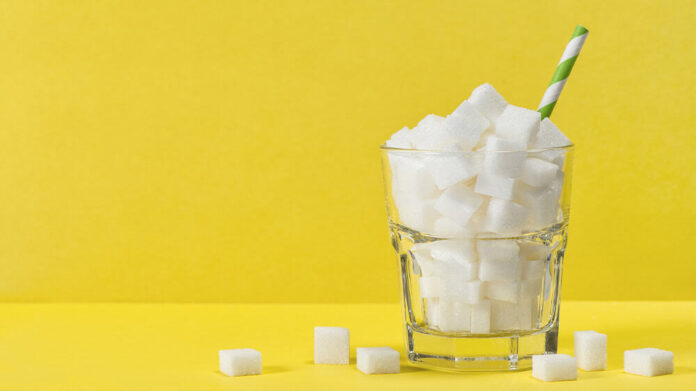Diabetes Australia is proud to stand with the Rethink Sugary Drink Alliance in today’s call for mandatory labelling of teaspoons of sugar on all sugary drink packaging.
This is a crucial step in tackling Australia’s growing type 2 diabetes epidemic and improving the health of all Australians.
Diabetes Australia’s Group CEO Justine Cain said the current lack of clear, easy-to-understand labelling of sugary drinks was failing consumers and contributing to a national health crisis.
“Sugary drinks remain one of the largest sources of added sugar in the Australian diet, contributing heavily to rising rates of overweight, obesity and chronic disease,” Ms Cain said.
“A single 600mL soft drink can contains up to 16 teaspoons of sugar, more than twice the World Health Organisation’s recommended daily intake of added sugar, and yet many Australians just don’t know how much sugar they are consuming.
“Increased consumption of sugary drinks and ultra-processed foods is contributing to a rise in type 2 diabetes in Australia.
“For people in their 20s and 30s we’ve seen a 44% increase in type 2 diabetes in the past decade. We simply cannot ignore the role that highly marketed, high-sugar beverages are playing in this trend,” Ms Cain said.
“Teaspoon labelling makes the invisible visible. This kind of reform is not just sensible, it’s urgent.”
Ms Cain said Diabetes Australia strongly supports Recommendation 3 of last year’s Federal Parliamentary Inquiry into Diabetes, which calls for the introduction of front-of-pack labelling for added sugars.
“Front-of-pack labelling that shows added sugar in teaspoons is overwhelmingly supported by the Australian public,” she said.
“Today’s research from Cancer Council Victoria shows four out of five Australians agree this is the kind of clear, honest labelling they want to see. This is about giving people the information they need to support their own health.”
Data from Cancer Council Victoria’s 2024 Shape of Australia survey shows widespread public confusion around what constitutes a sugary drink. Only one in four respondents recognised sports drinks as sugary, and one in three didn’t realise fruit drinks often fall into this category. Many of these drinks contain nine or more teaspoons of sugar per serve.
Other countries including Chile and Mexico have successfully implemented front-of-pack labelling policies that include sugar content, and Australia must follow suit.
Ms Cain said type 2 diabetes is one of the most urgent and costly chronic health challenges facing Australia today.
“We now have more than 1.3 million Australians living with diagnosed type 2 diabetes, and an estimated 500,000 more living with silent, undiagnosed type 2 diabetes.
“We must act now to stem the tide, and clearer labelling of added sugar is a simple but powerful tool that would help people make more informed choices.”
For more information and resources, visit www.rethinksugarydrink.org.au or www.diabetesaustralia.com.au
About Diabetes Australia
Diabetes Australia is the national organisation supporting all people living with or at risk of diabetes. We put people first. We work in collaboration with member organisations, consumers, health professionals, researchers and the community.
For more information visit: www.diabetesaustralia.com.au

